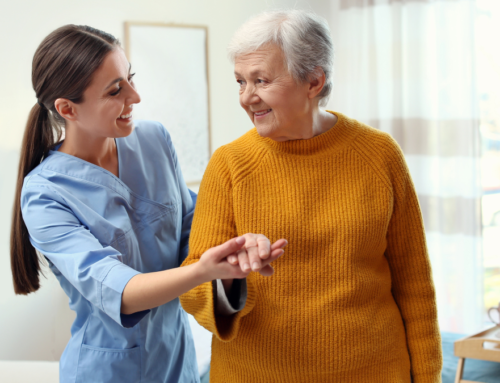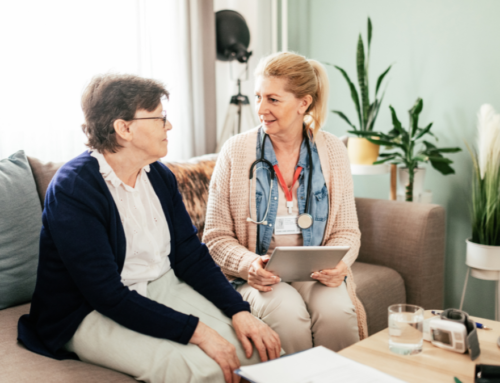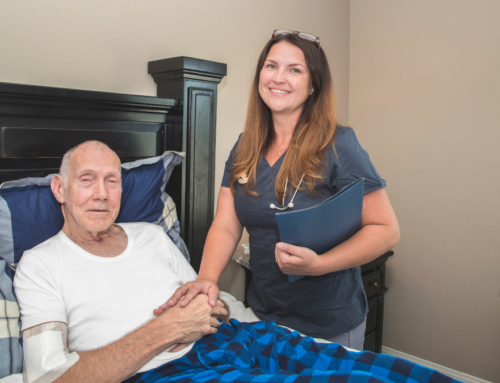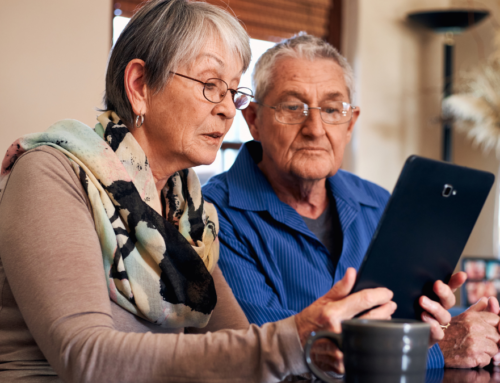
Everyday Problems Seniors Face and How to Address Them
Imagine looking in the mirror and not recognizing your own reflection. The face staring back at you is thin and aged and with deep wrinkles. It’s hard to believe that this person is still alive, let alone you! This is what it feels like for many seniors when they see themselves in the mirror each day.
It is often said that aging is a journey. Unfortunately, this journey has many bumps in the road. One of the most important things you can do for your senior loved one or yourself is to know what to expect when hitting these bumps.
Here are some everyday problems faced by seniors and how you can help:
Arthritis
Arthritis is the most common form of joint disease in seniors and can lead to stiffness, pain, swelling, and decreased range of motion. The seniors who suffer from arthritis often feel like their quality of life has decreased drastically. However, there are many things you can do to help your senior loved one deal with arthritis.
One important thing is to make sure seniors have a balanced diet . Eating the right foods, like whole grains, fruits & vegetables that are low in saturated fats, sodium and processed foods, will promote good bone health and make it easier for seniors to maintain an active lifestyle. You should also encourage seniors to get regular exercise. This will help seniors improve their range of motion, increase muscle tone and strength, and fight off fatigue. Exercises like yoga are great because seniors can do them at home without any equipment!
Slower Reaction Time
As seniors age, their reaction times slow down. This can make seniors more accident-prone and put them in danger. Make sure seniors take precautionary measures to avoid any possible accidents at home or on the road!
Seniors should check throw rugs before they step out of bed. Getting one foot tangled will increase the chance that seniors will slip and fall. Make sure seniors’ rooms are well lit to decrease seniors’ reaction time when they get out of bed at night. This way seniors can see where they’re going without any surprises.
Vision Loss
Vision loss may be caused by macular degeneration or glaucoma; it can make tasks like reading difficult and cause seniors to limit their activities.
You can help seniors deal with vision loss by doing things like reading seniors their mail and the newspaper. If seniors get stuck, you can help by reading these things to them. Another option is to buy seniors large-print books and magazines. You can also encourage seniors to get outside and enjoy nature. The beauty of Mother Nature may be all the stimulation seniors need.
Hearing Loss
Hearing loss is a common problem amongst seniors and can be caused by noise, aging, disease, and heredity. This makes it more difficult for seniors to communicate effectively. You can help seniors by encouraging them to speak louder, watching their volume when they’re on the phone, and encouraging them to pause to think before responding to someone. You can also help seniors monitor their TV and radio volume. You should also be sure they have access to a hearing specialist who will work with them to determine the best options for managing their hearing loss and offering helpful solutions.
Skin Problems
Many seniors experience skin problems such as dryness and rashes due to urinary incontinence. For seniors who wear adult diapers, this is a common issue. You can help seniors by encouraging them to shower daily or bathe whenever they have the chance. If seniors are unable to bathe themselves, you can help them, or provide help for them. You can also apply lotion or cream to their skin to combat dryness. It’s important to make sure seniors don’t have any cuts or scrapes because these could become serious issues.
Memory Problems
As we age our brains shrink which leads to a decrease in memory function. Seniors with memory problems can find it difficult to complete tasks, remember important information, and recall recent events. You can help seniors by doing things like writing down their plans for the day or taking seniors shopping. You can also take seniors out in public so they don’t feel isolated. Just be sure seniors are dressed warmly when you go out at night. You should also monitor seniors’ medication to ensure seniors are taking the right dosage at the right time.
Social Isolation
Many older adults feel isolated from society because they don’t have children or grandchildren nearby or because they feel embarrassed about their physical or mental state. You can help seniors avoid social isolation by encouraging them to go out into the community. They can visit a relative, volunteer at a charity, or enjoy the company of new friends through senior groups and clubs. You can also encourage seniors to use technology like Zoom so seniors always have someone on hand to talk to no matter how far they are from friends and family.
Decreased Appetite and Weight Loss
A decrease in appetite and weight loss is common as seniors age because their sense of smell and taste start to decline. Seniors may lose their appetites but still need to eat. You can help by preparing tasty meals they will enjoy. You can also encourage seniors to eat healthy snacks like fresh fruit and vegetables if they aren’t hungry for a complete meal.
Inability to Perform Regular Hygiene Tasks
As seniors age, they may experience a lack of dexterity. They might only have the strength to stand for a few minutes or have difficulty gripping things. You can help by encouraging them to take short walks around the house or to take part in light resistance exercises that seniors can do without getting up. Offering to help seniors with some routine hygiene tasks, like helping them bathe, cutting their toenails, and assistance with dressing can help them a lot.
Difficulty Managing Medications For Chronic Illness
Many seniors are on multiple medications for chronic conditions like heart disease, arthritis, high blood pressure, and diabetes. If seniors aren’t able to keep track of their medications or miss doses, they will suffer or even put them at risk of more serious medical conditions. You can help by encouraging them to use a day planner or pillbox where they can place all their medications in the appropriate compartments. You can also encourage them to ask their healthcare provider about alternative medication routines.
Final Thoughts
Aging often poses a number of challenges that can make everyday tasks more difficult. Having someone to help seniors with their everyday tasks can make a big difference in their lives. From seniors who lack mobility or dexterity, to seniors who need help with medication, there’s a solution for each and every problem that seniors face. Let us know how we can help! We can provide practical solutions to some common day-to-day issues for seniors and offer tips on what they need to do to stay healthy and happy. If you’re not sure where to start, we’re happy to talk through your, or your aging loved one’s, unique situation, and provide guidance and resources to help make decisions about the best course of action to help, that meets your situation and budget. Give us a call at (678) 494-8129 or email us at info@SilverCompanions.com. Our team of experts can help you stay in control and manage your everyday life with ease!





